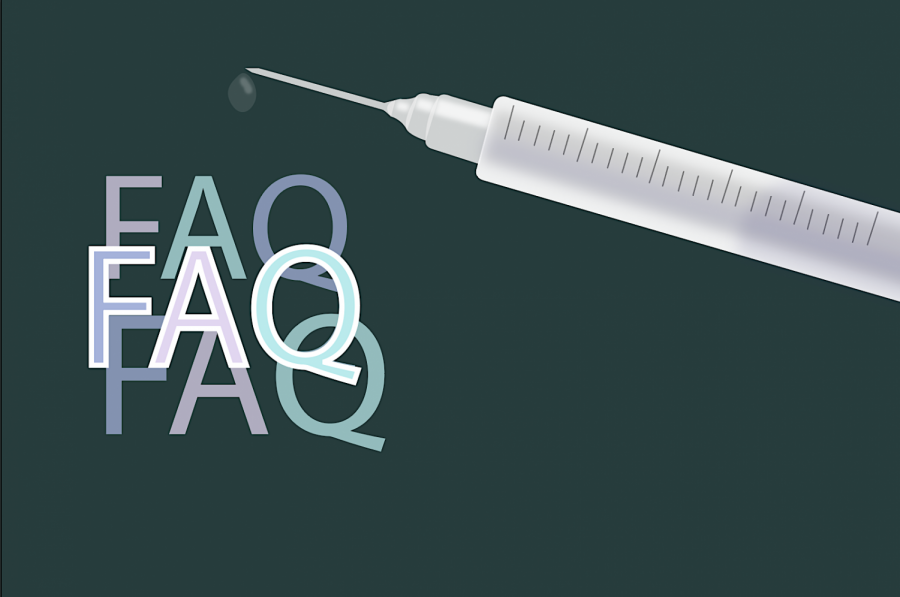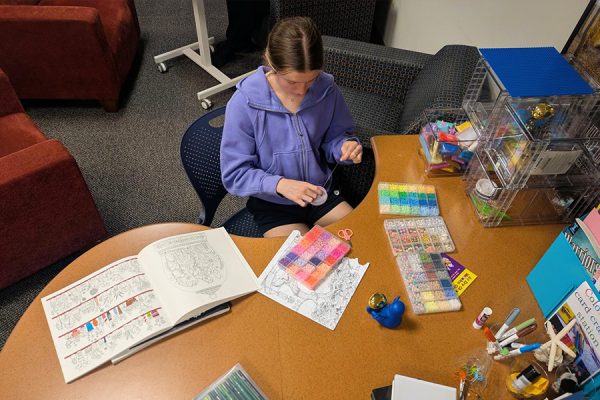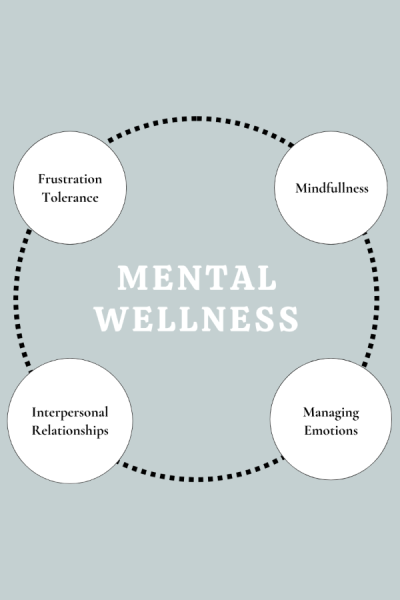What to know about the COVID-19 vaccines
It’s been almost a year since the COVID-19 pandemic broke out and caused everything we’ve known to change. But after spending our summers and holidays stuck indoors, the recently developed vaccines have given people hope that it’s almost over.
Still, it hasn’t stopped people from asking questions about these new vaccines and worrying about the finer details. So before you get your vaccination, here’s what you need to know.
What are the different vaccines available?
At the time of publication, there are only two vaccinations available to the United States. The first one is the Pfizer-BioNTech vaccine, which the FDA approved for administration on Dec. 11 of last year. The second vaccination is the Moderna vaccine, which was approved only a week later on Dec. 18.
Both vaccinations are administered in two separate doses approximately a month apart. While there’s little difference between the two vaccines, the most notable one is the age that they’re being administered to. The Pfizer-BioNTech vaccine is currently approved to those age 16 and above; the Moderna is only available to those 18 and older.
How does the vaccine work?
The way that most people understand how vaccines work is that it injects a piece of the virus into the human body to help prepare it. Sometimes this can result in the patient getting sick, as is the case with the flu vaccine. One of the primary concerns is that the COVID-19 vaccinations contain some of the virus and will potentially infect patients.
However, this is not the case with either the Pfizer-BioNTech or the Moderna vaccine. Both of these are known as “mRNA vaccines.” According to the CDC, mRNA vaccines don’t contain the actual virus, but instead the instructions to create a “spike protein” that triggers the immune system. It doesn’t alter DNA and it can’t infect a patient with COVID-19.
What happens is the vaccine teaches the immune system to create copies of the proteins and then breaks them down. The next time the COVID-19 virus enters the system, the body is able to recognize that the virus is a threat. Consequently, antibodies are produced and the body is able to develop an immunity without being put in danger.
When can I get the vaccine?
As the vaccine is still fairly new into production, it is not widely available to the general public. The World Health Organization has advised governments to have the groups most at risk for infection given top priority for the vaccination. This group, known as “Phase 1” contains front-line workers helping the sick, those over the age of 65 and people under 65 who have conditions that might make them more vulnerable (e.g. diabetes or heart disease).
As for everybody within the college age demographic, it’s going to depend on the state, county, how many of the highest risk groups haven’t been vaccinated yet and how many vaccines are available. But according to the Lawrence and Douglas County Public Health, it’s most likely that the average college student won’t be receiving a vaccine until late April at the latest.
“Douglas County has the staff and the process in place to host large vaccination events, and even a drive-thru clinic,” Associate Vice-President of Capital Planning, Facilities and Emergency Management Scott George said. “The problem is they don’t have enough vaccines.”
George serves as Baker University’s representative for the Douglas County Unified Command and serves on the Education Committee. The group was formed to develop procedures regarding protection and COVID-19 testing at the start of the pandemic. More recently, the group has been focusing on how many vaccinations are available and how it can be administered to others.
“I’ve been working to make sure higher education has higher prioritization,” George said. “Some campuses have gone 100% online, but that’s not Baker. The best thing for us, then, is to get people vaccinated. We’re at the mercy of the state, but we’ll keep asking.”
Are there any side effects to the vaccine?
The CDC has posted a list of possible side effects once you receive the vaccination for both the Pfizer-BioNTech and Moderna vaccine. Both have been reported to cause redness and swelling around the area where the shot is administered. The rest of your body may experience mild chills, fatigue and headaches that can persist for a few days.
While it’s important to monitor your own symptoms after receiving the vaccine, understanding how your body can react is important to prevent further distress. Do check out the list of possible ingredients in case of any allergens.
Do I need to keep wearing my mask and social distancing once I get the vaccine?
Experts are still unsure how effective the vaccine will be in preventing the spread to others and are currently monitoring it as more vaccines roll out. The vaccination is just another tool in preventing further spread and loss of life.
In this early stage, avoiding other safety precautions while the vaccine isn’t widespread puts other people at risk and could potentially put you at risk. Even if you receive the vaccine, there will still be a few days needed for the body to prepare its defenses. Once there’s more certainty about the risk of vaccinated people spreading the virus, the CDC will announce when it will be safe to lift other safety precautions.
When will everything go back to normal?
“Herd immunity” has been discussed when it comes to the COVID-19 pandemic and when it will eventually end. Herd immunity occurs when enough of a population is immune to a disease that it becomes much harder for widespread infection to occur. This can often help people who, for one reason or another, cannot receive a vaccination to stay safe.
WHO says that, in the case of the coronavirus, the most ethical way for the United States to achieve herd immunity is to have the vast majority of the population vaccinated. With how recent vaccinations have become available, this percentage is still unknown.
There’s no certainty when life will go “back to normal” or even if it will be the same again. But the first step is going to be waiting to get vaccinated and continuing safety procedures until it is safe.

Maria Gutierrez is a senior from Salina, Kan. She is a mass media major and a part of the Alpha Chi Omega sorority. In her spare time, she enjoys writing,...










